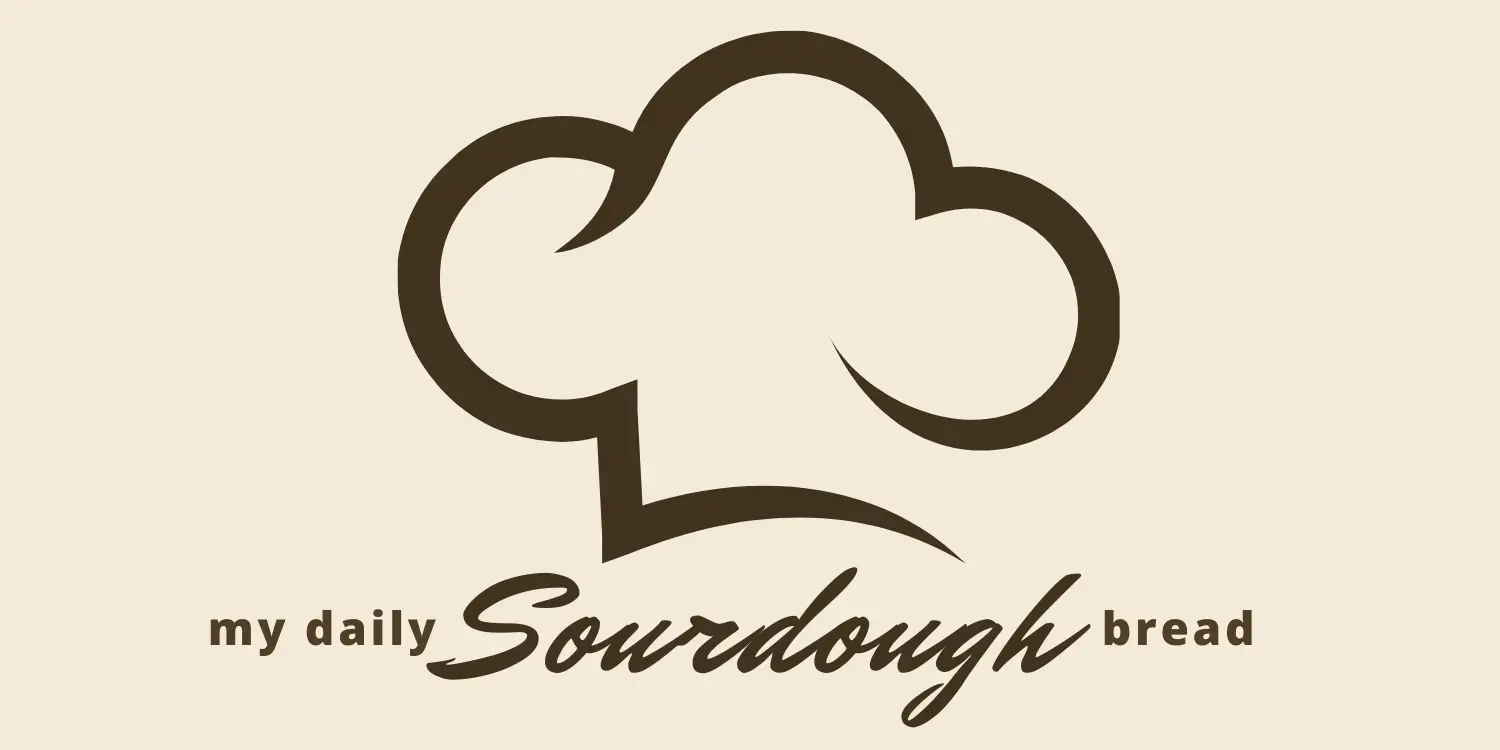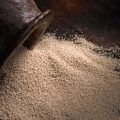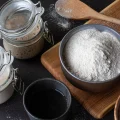Many of us are unfortunate enough to know the horrific and uncomfortable feeling of acid reflux. Despite this, we love indulging in our comfort food despite our impending doom. If you’re wondering: is sourdough bread good for acid reflux? – here’s what you need to know!

Table of Contents
- Understanding Acid Reflux and Heartburn
- The Role of Bread in Digestion
- Is Sourdough Bread Good For Acid Reflux?
- Best Bread For Acid Reflux
- Bread To Avoid For Acid Reflux
- So Is Sourdough Good For Acid Reflux?
- Is Sourdough Bread Good For Acid Reflux FAQs
Understanding Acid Reflux and Heartburn
At the bottom of your esophagus, there’s a ring of muscle called the lower esophageal sphincter (LES). This little guy acts as a gatekeeper, opening to let food pass into your stomach and then closing to keep stomach acid where it belongs.
But sometimes, the LES can be a bit lazy. If it doesn’t close properly or opens when it shouldn’t, stomach acid can sneak back up into your esophagus. This is known as gastroesophageal reflux disease (GERD), or more commonly, acid reflux.
When that stomach acid makes its way up, it irritates the lining of your esophagus. Cue the burning sensation in your chest or throat – that’s heartburn, the most common symptom of acid reflux.
Despite its name, heartburn has nothing to do with your heart. It’s all about that pesky LES not doing its job properly.
What Causes Acid Reflux?
There are a variety of things that can cause acid reflux, some of these include pregnancy and smoking. Although the most common triggers are the type of foods you consume. Having a bad diet can instantly trigger acid reflux.
Some of the ways you can trigger acid reflux:
- Eating heavy meals and laying down immediately after.
- Eating heavy meals late at night.
- Eating certain foods like citrus, tomato, chocolate, spicy, fatty, or fried foods.
- Alcohol, caffeinated, and carbonated drinks.
- Being overweight or obese.
- Taking certain medicines like aspirin, ibuprofen, or muscle relaxers.
The Role of Bread in Digestion
When we eat bread, our bodies have to break it down so we can use it for energy. But not all bread is the same when it comes to digestion.
Bread is mostly made of carbohydrates, which give us energy. Our bodies turn these carbs into simple sugars that go into our blood. But the type of carbs in the bread makes a difference.
Whole grain bread has complex carbs and lots of fiber. Fiber slows down digestion, so we feel full longer and our blood sugar doesn’t spike too fast. White bread, on the other hand, is made with refined grains and doesn’t have much fiber. It can cause blood sugar to rise quickly, which isn’t good for people with acid reflux.
Gluten is a protein found in wheat, rye, and barley. Most people can digest gluten just fine, but some folks with gluten sensitivity or celiac disease can get acid reflux and other tummy troubles when they eat bread with gluten.
Is Sourdough Bread Good For Acid Reflux?
So then, knowing all this, is sourdough bread okay if you experience acid reflux?
The answer isn’t black or white, unfortunately.
Yes. In fact, sourdough bread is amongst the “good” types of bread that easily reduce acid reflux symptoms, simply because it is extremely nutritious, and contains prebiotics that promotes gut health.
At the same time, sourdough bread is a type of fermented food, which isn’t great for those who suffer from severe acid reflux, due to the presence of lactic acid bacteria.
If you desperately wish to have sourdough bread whilst suffering from acid reflux, then it’s best to make your sourdough starter and bread dough with whole grain flour, i.e., whole wheat flour.
Best Bread For Acid Reflux
If you want to enjoy your favorite bread without acid reflux, then there are definitely some options for you to choose from.
Always opt for bread that is high in fiber, as the protein content is especially exceptional for those who suffer from acid reflux.
100% Whole Grain Bread
If there is one type of bread that you’d like to safely add to your diet, then try 100% whole-grain bread. This type of bread is brimming with whole grains, fiber, and protein, working together to slow down digestion and achieve less acid production.
You must ensure that you’re buying 100% real whole-grain bread by checking the ingredients list. Real whole grain bread will contain whole mill flour, cornflour, or brown rice flour as their first ingredient.
100% Whole Wheat Bread
Whole wheat bread is another great choice for those suffering from acid reflux. The high fiber content, coupled with essential nutrients like Vitamin B and iron, make them an extremely healthy choice to go for.
You must check the ingredients label, as some manufacturers will claim it’s 100% whole wheat,. However, their bread will contain refined flour, so avoid this at all costs.
(By the way I’ve got a whole wheat sourdough recipe!)
Multigrain Bread
If you prefer the kind of bread that provides a deep earthy flavor, then multigrain bread is what you need. The taste will depend on the type of multigrain you purchase, so always make sure before you give them your money!
Some of the grains found in multigrain bread include barley, oat, and flaxseeds.
Oat Bread
Oat bread can be a beneficial dietary choice for individuals experiencing acid reflux. This bread is rich in dietary fiber, which is essential for maintaining digestive health. Oat bread contains beta-glucans, a type of soluble fiber that has been associated with various health benefits, such as lowering cholesterol levels, regulating blood sugar, and supporting the immune system. When it comes to managing acid reflux, the fiber content in oat bread plays a crucial role.
The soluble fiber absorbs water and forms a gel-like substance in the stomach, which helps slow down digestion and promotes smooth passage through the digestive tract. Additionally, fiber can help regulate stomach acid levels, potentially reducing the frequency and severity of acid reflux symptoms. The whole grains present in oat bread can also contribute to a feeling of fullness and satiety, which may prevent overeating, a common trigger for acid reflux. Incorporating oat bread into one’s diet may provide both nutritional benefits and symptomatic relief for those dealing with acid reflux.
Rye Bread
Rye bread, with its unique nutritional profile, offers both potential benefits and challenges for those with acid reflux. Packed with complex carbohydrates, dietary fiber, and essential minerals, rye bread can support digestive health and overall well-being. The fermentable carbohydrates in rye, such as arabinoxylan, act as prebiotics, promoting the growth of beneficial gut bacteria. However, these same fermentable compounds may lead to increased gas production and stomach distension in some individuals, potentially exacerbating acid reflux symptoms.
Moreover, the inherent acidity of rye bread itself could further disrupt the delicate pH balance in the stomach. While rye bread’s lower glycemic index can help regulate blood sugar levels and provide a feeling of fullness, its impact on acid reflux ultimately depends on individual tolerance. Those with severe acid reflux may need to approach rye bread with caution and monitor their body’s response to determine if it is a suitable addition to their diet.
Rye breads on the blog you can try:
Gluten-Free Bread
Gluten-free bread may provide relief for those suffering from acid reflux. By eliminating gluten, a potential trigger for digestive issues, gluten-free bread can help reduce inflammation and excessive acid production in the gut. These loaves are made with alternative flours like rice, almond, or other non-gluten grains, along with ingredients such as tapioca starch, potato starch, and xanthan gum to mimic the texture and structure of traditional bread.
Many gluten-free breads also incorporate whole grains and fiber-rich ingredients, which can aid digestion and prevent constipation, another common trigger for acid reflux. However, individual results may vary, and it’s essential to consult with a healthcare professional before making significant dietary changes to manage acid reflux symptoms. They can guide you in creating a balanced meal plan that ensures you receive all necessary nutrients while exploring the potential benefits of gluten-free bread for your specific condition.

Bread To Avoid For Acid Reflux
You must avoid any type of bread that is made with refined grain, i.e., white bread. You might enjoy the flavor, but it’s never a good choice for someone suffering from acid reflux.
Bread that is made with refined grains has a low fiber and nutrient content. Plus they tend to contain lots of sodium, sugars, and fats, as well as other processed ingredients which aren’t great for those suffering from acid reflux.
So Is Sourdough Good For Acid Reflux?
Yes and no. This all boils down on each person’s personal tolerance.
If you’re suffering from acid reflux it’s best to stick to whole-grain bread.
Is Sourdough Bread Good For Acid Reflux FAQs
What Kind of Bread Is Good For Acid Reflux?
Whole-grain bread is a lifesaver when it comes to those suffering from acid reflux because it enables you to enjoy your favorite type of food without suffering.
Is Sourdough Bread Very Acidic?
Yes, the sourdough starter makes sourdough acidic.
Why Do I Get Heartburn From Sourdough Bread?
Fermented foods like sourdough bread contain histamine. Normally, our bodies enzymes will digest them, though some people don’t produce enough of these enzymes, meaning that it won’t be digested.
Is Sourdough Bread Easy on Stomach?
In sourdough, the lactic acid bacteria produces an enzyme called phytase, which pre-digests the phytic acis during fermentation. This neutralizes the effects of phytic acid, making the bread easier for us to digest.




![What Soup Goes Well With Sourdough Bread [15 Best Soups To Try] 6 What soup goes well with sourdough bread [15 best soups to try]](https://www.mydailysourdoughbread.com/wp-content/uploads/2023/06/soups-with-sourdough-120x120.jpg)

